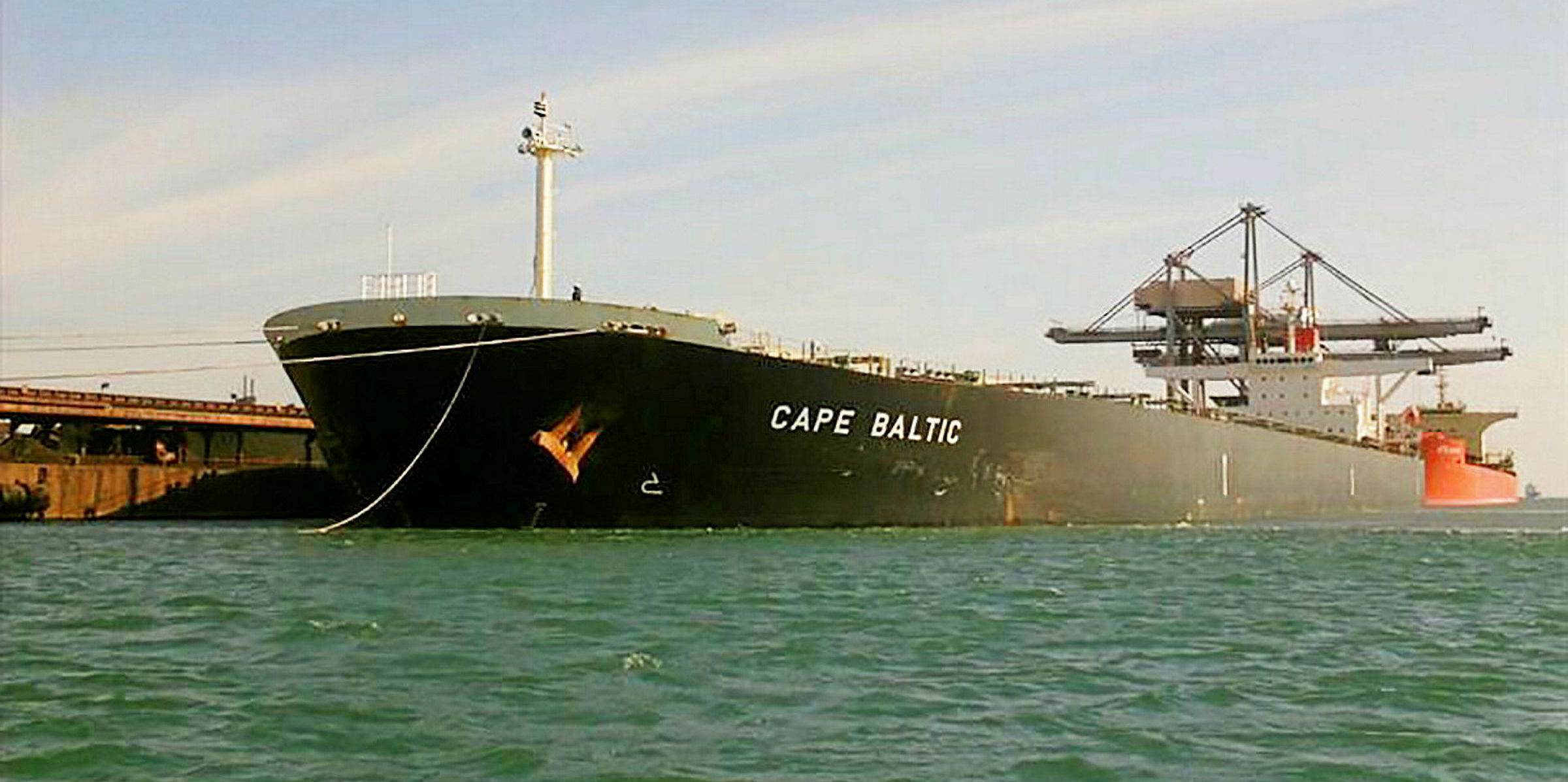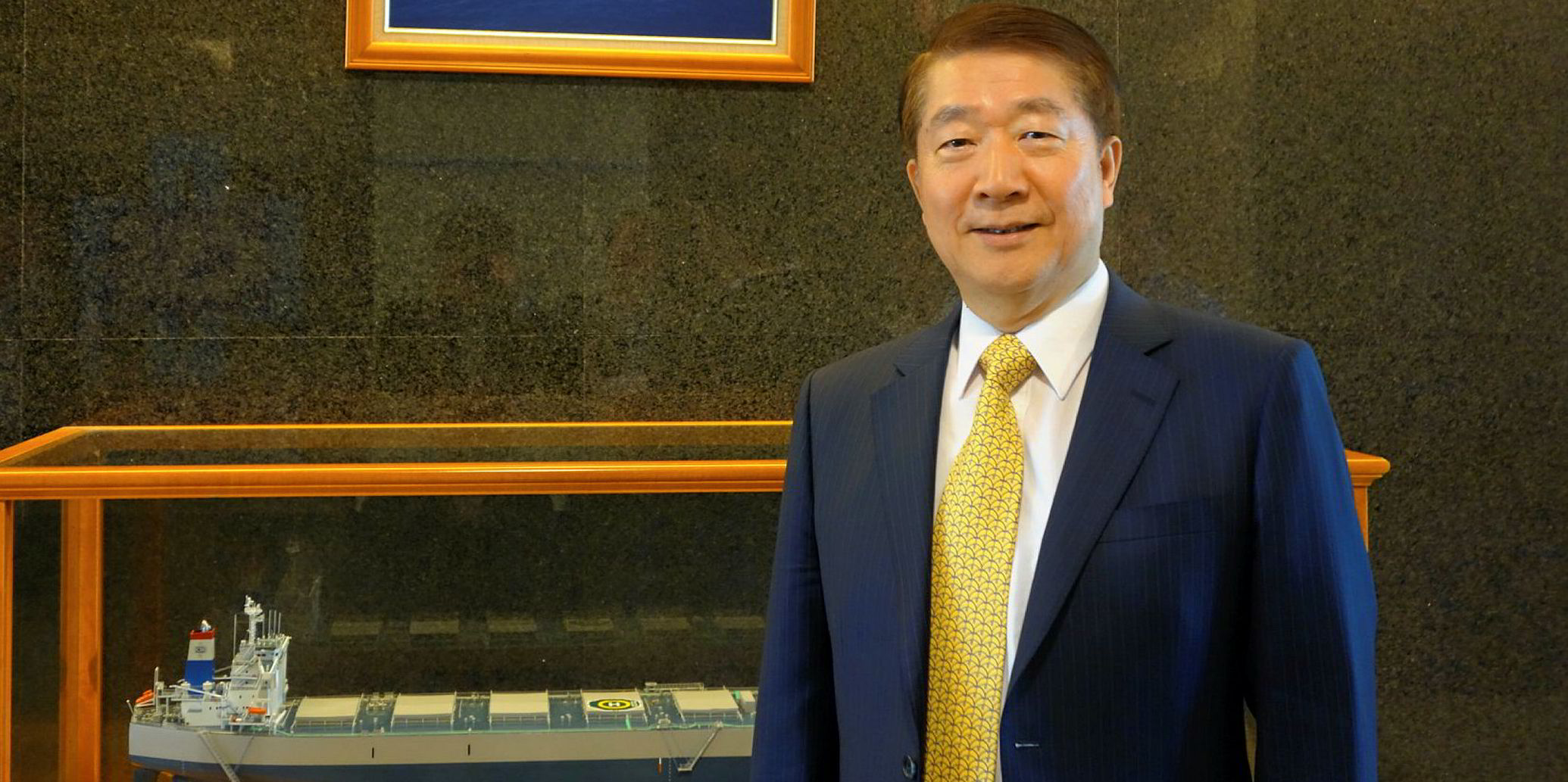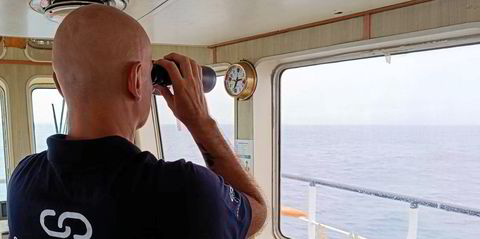A stalemate in the secondhand market for bulkers is tilting buyers’ way as stubbornly sluggish freight rates are prompting some sellers to get rid of vessels across the size spectrum from capesizes to handysizes.
Those on the buying side, by contrast, are encouraged.
“Prices are already falling and we’re on the lookout for acquisitions if they drop a little further yet,” a Greek shipowner told TradeWinds this week.
Some Athens-based brokers see things the same way.
“Many [owners] seem to think it's time to strike and take advantage of the cheap asset prices,” Doric Shipbrokers said in a recent report.
Buyers are already moving, particularly in the Far East. Indonesian interests are reportedly in the process of acquiring the 177,500-dwt Cape Baltic (built 2005), which Celeste Holdings is said to be offloading for about $10.4m.
This is the first capesize sale reported in a month, and it reflects slumping prices. When a sistership of the Japanese-built Cape Baltic was sold in September 2019, it fetched close to $16.7m.
TradeWinds has requested comment from Celeste, a Singapore-based shipowner.
Some sellers are divesting ships on the secondhand market because other avenues, like scrapping or cold lay-up, are currently closed to them due to coronavirus-related restrictions on crew changes.
Andreas Hadjiyiannis, a renowned Greek-Cypriot asset player, is reportedly selling the Japanese-built, 75,600-dwt panamax Cap Ferrat (built 2000) for $4m. That is far below the $4.7m that VesselsValue estimates the vessel is worth.
Managers at Hadjiyiannis company Cyprus Sea Lines, however, said the information is not true.
Stam denies sale reports
Sources close to Stam Shipping, another Greek outfit, dismissed as inaccurate reports that the company has offloaded its biggest and second-youngest ship, the 53,300-dwt supramax Blue Ripple (built 2005). Market sources previously said that deal took place for about $4.8m. Maritime Strategies International (MSI) estimates the ship's fair value between $5.1m and $6m.
It is telling that some companies are selling to exit the market altogether, or to take a break from it until the situation improves.
Small Greek outfit Kallianis Bros is selling the last ships listed in its fleet.
Kallianis Bros is offloading the 30,500-dwt KBS Star (built 2007) to Vietnamese buyers at an undisclosed price. Speaking to TradeWinds, principal George Kallianis said his company is exiting the market just to get back in again.
"The way prices move, we'll definitely return with younger and bigger ships. Will it be in a two, five or six months from now? I can't tell you, but we're already looking at the next deals," he said.
Kallianis Bros sold another vessel before Covid-19 peaked, at the end of 2019: the 28,700-dwt Georgia (built 2000), which reportedly fetched about $4m. "Thank God we did that," Kallianis said.
Brokers also reported that Chinese interests are behind a $3.4m purchase of the 46,700-dwt Sea Arrow (built 1998), the last ship in the fleet of Greece's Mariteam Services. Sources close to the outfit, however, said the ship has not been sold and wasn't even the subject of negotiations.
However, a few swallows do not make a summer. One broker described such transactions as just a stack of small bits and pieces. Deal volumes have to increase significantly to make a difference, he added.
In an unmistakable sign there are sellers holding firm out there, Taiwan’s Hsin Chien Marine turned down a $14.5m bid for the 176,900-dwt New Stage (built 2008) — the highest offer it received last week for the Namura Shipbuilding-constructed capesize.
Owners have since withdrawn the vessel from the market because they would not accept anything below $16m, TradeWinds is told.
Dry bulk earnings and secondhand prices are still at a mismatch, Athens-based analysts said.
“Dry bulk asset values still fail to reflect the returns in the freight market, rendering an alignment of buyers’ and sellers’ ideas challenging and further impeding S&P activity as a result,” Allied Research said in a report on 25 May.






